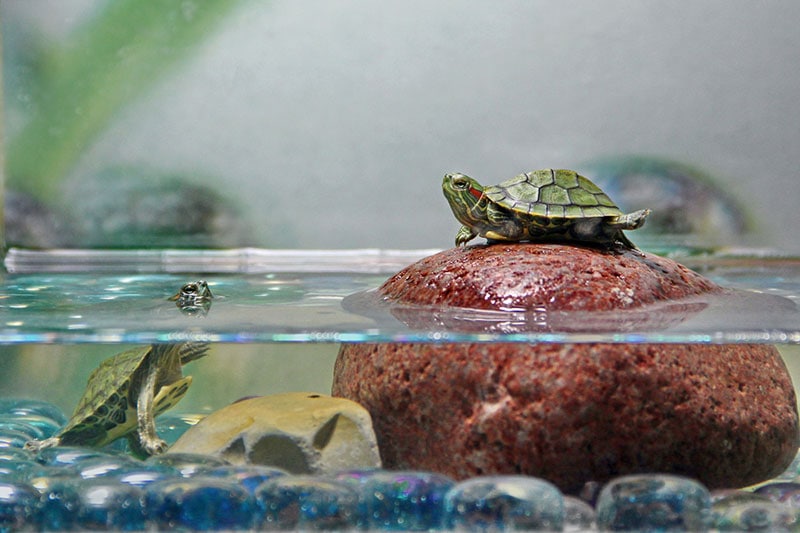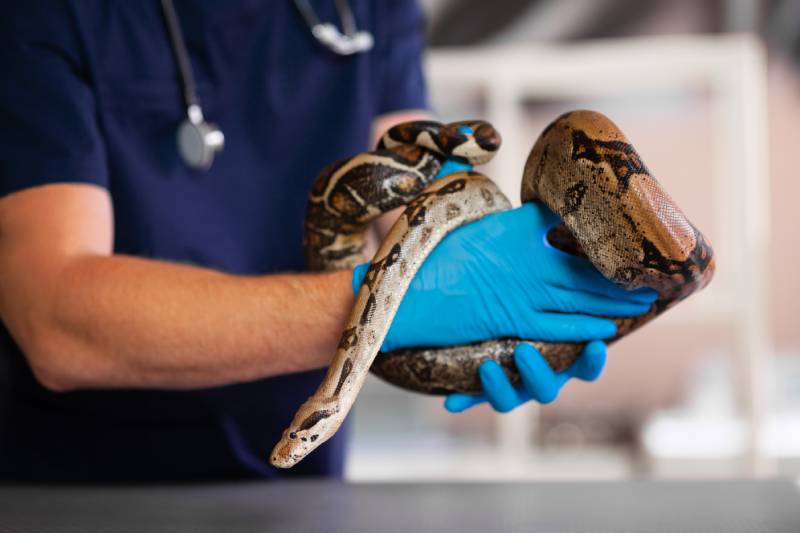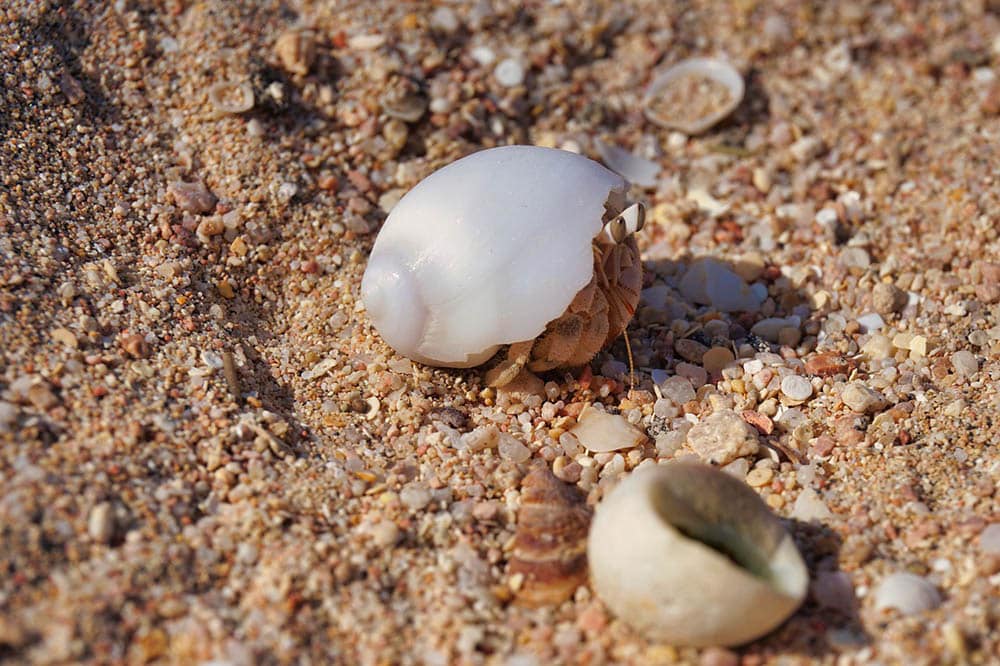VET APPROVED

The information is current and up-to-date in accordance with the latest veterinarian research.
Learn more »Click to Skip Ahead
Because the appearance and frequency of your turtle’s eliminations can be an indicator of their overall health, it’s important to know how often turtles poop. The answer varies slightly based on the turtle’s age and what they’re eating.
In general, adult turtles poop every 2-3 days, while juveniles may do so daily. In this article, you’ll learn why turtles poop when they do and what normal turtle feces look like. We’ll also cover what to do if your turtle isn’t defecating normally. Finally, we’ll review the basics of a healthy diet that will keep your turtle pooping on schedule.

Why Turtles Poop When They Do
A turtle’s poop frequency typically corresponds to its feeding schedule. Turtles commonly poop while they’re eating and sometimes snack on that too! Adult turtles are generally fed every 2-3 days and you can expect poop to follow the feeding schedule. Growing juvenile turtles need more fuel and usually eat every day. This increased eating leads to more frequent pooping.
What Does Turtle Poop Look Like?
Normal turtle poop is usually brown to greenish brown, depending on what it’s been eating recently. The consistency and amount produced can also vary, but the poop is generally formed and smelly.
Sometimes, the turtle’s poop will look white or partly white. That’s because turtles often pass poop and pee at the same time. Some of the turtle’s pee is a white, semi-solid liquid that can coat the poop and make it look lighter.
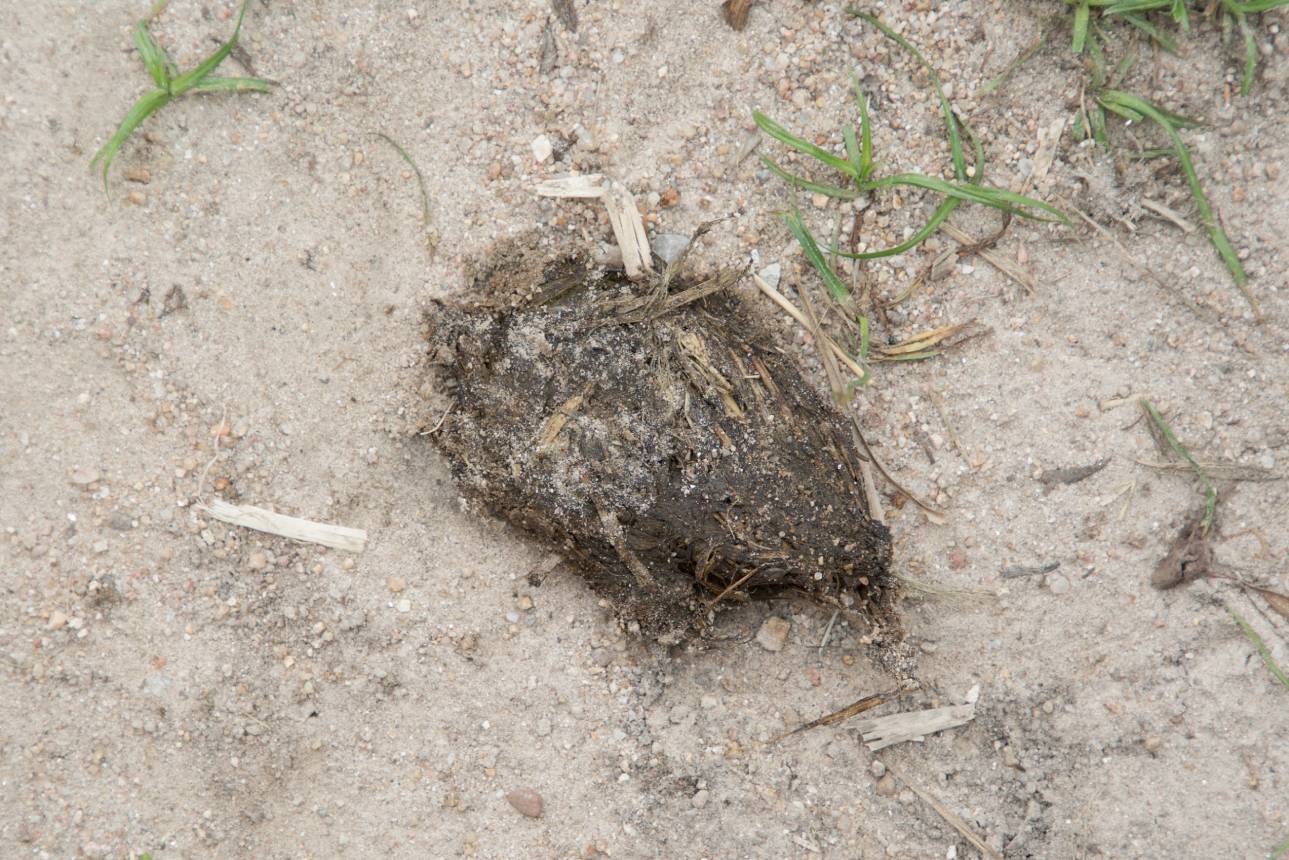
What Should I Do If My Turtle Isn’t Pooping?
If your turtle isn’t pooping regularly, it could be constipated. Common causes of constipation in turtles include being fed the wrong diet, not getting enough exercise, parasites, or a blockage from eating sand or other foreign material.
Signs of constipation include not pooping, straining to poop, and stools that appear hard and impacted. If the turtle strains too much without producing excrement, it can push out or prolapse its rectum or intestines. Contact your veterinarian if you suspect your turtle is constipated, especially if you notice a prolapse.

What Should Turtles Eat?
The right diet for a turtle will depend on the species. Most turtles are omnivores that eat plant and animal material. Some are considered full carnivores. Omnivorous species should eat about 25% commercial pellets, 25% live animals, and 50% plant foods. Carnivores should eat 50% pellets and 50% live animal protein. Rotate and mix commercial pellet brands to provide the turtle with a range of nutrients.
Vegetables and aquatic plants specifically sold as turtle food are the best options for plant material. You can serve several vegetables at each meal and rotate the choices every few weeks.
- Spinach
- Kale
- Watercress
- Green beans
- Squash
- Collard greens
- Romaine lettuce
- Feeder fish
- Worms
- Snails
- Slugs
- Shrimp
Turtles can also eat the occasional fruit such as apple or melon as treats. Dog and cat kibble, live insects, and commercial turtle treats are okay to offer sometimes, too. Turtles generally need vitamin and calcium supplements, but talk to your veterinarian about any additions to the regular diet before purchasing supplements.
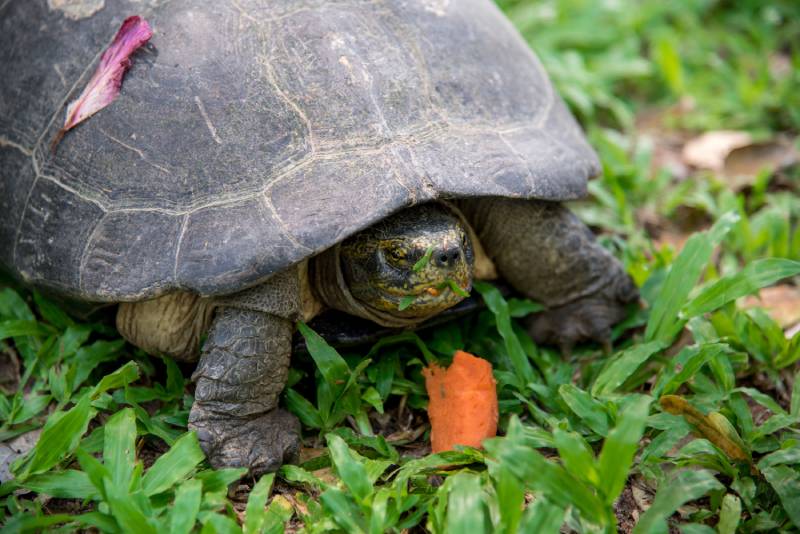

Final Thoughts
As a general rule, turtles poop about as often as they eat, as long as they eat a proper diet. That equates to every 2 to 3 days for adults and daily for juveniles. Less frequent pooping or straining to pass feces may indicate constipation or another health issue. Your veterinarian can help you ensure your turtle is on a healthy diet and tell you what to do if you suspect constipation. Knowing what’s normal about turtle poop can help you catch potential problems early and get your pet back on the road to good health.
Read Also:
- How Long Do Turtles Live? Average Lifespan, Data & Care
- Turtle vs. Tortoise: What’s the Difference? (With Pictures)
Featured Image Credit: Rusinova Tatyana, Shutterstock
